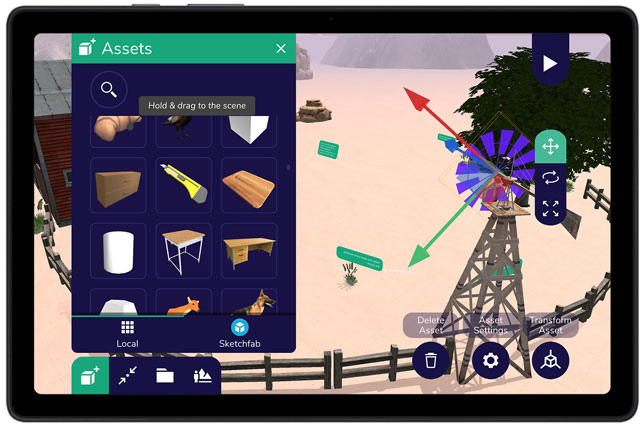Dreamscape and Zoe Partner to Simplify VR Content Creation
Virtual reality company Dreamscape Immersive is teaming up with VR/AR software provider Zoe Immersive to make it easier to create 3D content for the Dreamscape VR platform.
Zoe offers a no-code 3D world creator toolset that allows users to create and share interactive, immersive experiences regardless of skill level. Dreamscape will use the Zoe technology to help users build collaborative VR experiences such as virtual classrooms, immersive training exercises and remote conferencing.
In particular, the integration will benefit Dreamscape Learn, a joint venture between Dreamscape and Arizona State University announced in 2020 that aims to transform education through immersive learning experiences. The technology will enable educators to create their own virtual classrooms, import 3D models via a drag-and-drop interface, program interactivity into the learning environment and more.

Zoe's drag-and-drop interface
"We see the future of education, work and play as virtual activities, where shared social spaces serve as the backbone for learning, exploration and problem-solving. Our vision is critical on making such spaces accessible and adaptable to all," said Walter Parkes, co-founder and CEO of Dreamscape, in a statement. "Zoe Immersive's toolset is a great democratizer of this process. By simplifying VR creation and putting these powerful tools into the hands of many, our companies hope to further expand the availability of the unique immersive VR experiences which can be built on the Dreamscape platform."
About the Author
Rhea Kelly is editor in chief for Campus Technology, THE Journal, and Spaces4Learning. She can be reached at [email protected].